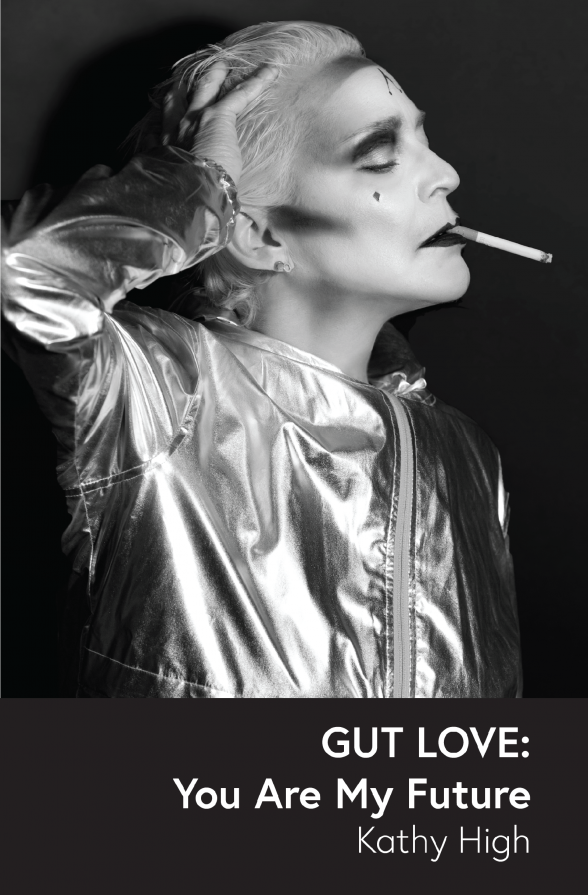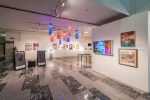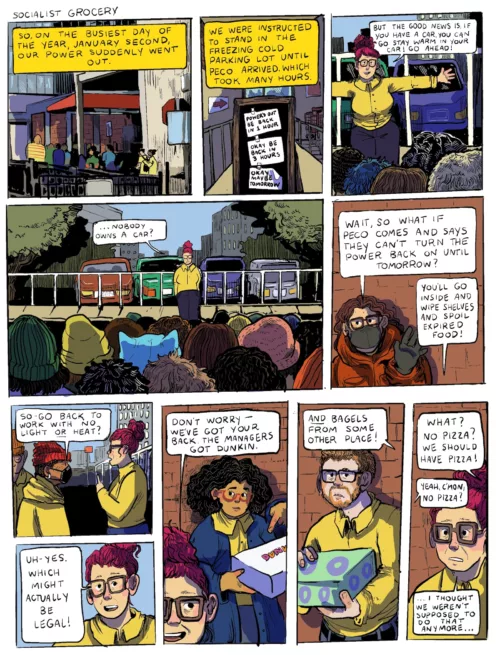Understanding the microbiome, the millions of bacteria that live in our guts, is one of the newest frontiers in human health. Gut Love: You Are My Future, the newest exhibit on display at the University City Science Center’s Esther Klein Gallery (EKG), offers an artist’s perspective as it explores the human condition through the lens of the gut microbiome.
Gut Love opens October 12, 2017, and runs through November 25th. An opening reception for the exhibit will be held at EKG, 3600 Market Street, on October 12th from 5 – 7:30 p.m.

Created by performance artist Kathy High, Gut Love embraces metaphors of interspecies love, immunology and bacteria as it examines research in fecal microbial transplants and gut biomes to better understand the importance of bacteria’s function in our bodies. We have millions of bacteria and fungi in and on our systems; how do these ecologies of the body coexist? As a patient with Crohn’s disease, High’s interest in gut microbiota starts with her own body.
Led by High, Gut Love includes collaborations with William DePaolo, Guy Schaffer, Oliver Kellhammer, and Allison Berkoy, with creative input from Zach Appio, Diane Bertolo, DePaolo Lab team (Andrew Johnson, Denise Chac, Melissa Kordahi, Bayaan Haidar, and Amy Parker), Caitlin Foley, Eleanor Goldsmith, Shannon Johnson, Jillian Hirsch, Kat McDermott, Solon Morse, Senem Pirler, and Paul Vanouse.
The exhibition also features a performance and research talk with Kathy High, Guy Schaffer and William DePaolo, on October 26th from 7 – 8 p.m. and October 27th from 12:30 – 1:30 p.m. at EKG. Schaffer, a Science Technology Studies (STS) scholar, will discuss his research on Dr. Chalis Underdue, a radical proctologist from the 1800s. Immunologist and Director of the Center for Microbiome Sciences and Therapeutics William DePaolo will join High to talk about their collaboration in gut microbiome manipulations.
Kathy High is an interdisciplinary artist, educator working with technology, art and biology. She collaborates with scientists and other artists, and considers living systems, empathy, animal sentience, and the social, political and ethical dilemmas of biotechnology and surrounding industries. She has received awards including Guggenheim Memorial Foundation, Rockefeller Foundation, and National Endowment for the Arts. Her art works have been shown internationally at documenta 13, in Germany; New York’s Guggenheim Museum and the Museum of Modern Art; UCLA; Dublin’s Science Gallery, NGBK in Berlin and Fesitval Transitio_MX in Mexico, as well as at MASS MoCA, in North Adams, Mass., and Para-site in Hong Kong. High is Professor in the Arts, and has a lab in the Center for Biotechnology and Interdisciplinary Studies at Rensselaer Polytechnic Institute, Troy, NY. She is an ongoing artist in resident with the Center for Microbiome Sciences & Therapeutic, DePaolo Lab, School of Medicine, University of Washington, Seattle.
This exhibit is sponsored by CMiST Center (University of Washington), The Mütter Museum and The College of Physicians of Philadelphia, Coalesce Center for Biological Art at the University of Buffalo, Rensselaer Polytechnic Institute/School of HASS, The Kenneth Rainin Foundation, and the University City Science Center.
About the Science Center
Located in the heart of uCity Square, the Science Center is a mission-driven nonprofit organization that catalyzes and connects innovation to entrepreneurship and technology commercialization. For 50+ years, the Science Center has supported startups, research, and economic development in the life sciences, healthcare, physical sciences, and emerging technology sectors. As a result, graduate firms and current residents of the Science Center’s incubator support one out of every 100 jobs in the Greater Philadelphia region and drive $13 billion in economic activity in the region annually. By providing resources and programming for any stage of a business’s lifecycle, the Science Center helps scientists, entrepreneurs and innovators take their concepts from idea to IPO – and beyond.
About the Esther Klein Gallery
The Esther Klein Gallery (EKG), which opened in 1977, uses the creative arts as a platform to explore relationships between art, science and technology. EKG seeks to positively impact the cultural life of both its immediate neighborhood of West Philadelphia and the broader Philadelphia community. EKG programming is designed to explore the range of art, science and technology exhibitions, and includes gallery talks, panel discussions, and education programs.




![Collaborative Research [RE]Imagining Art at New Esther Klein Gallery Exhibit 4 artblog reimagining science 3](https://www.theartblog.org/wp-content/uploaded/2018/02/artblog-reimagining-science-3-240x240.jpg)




